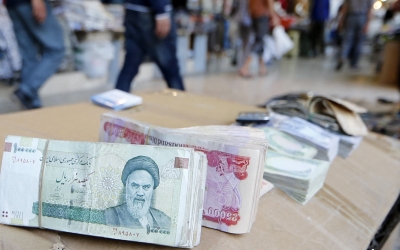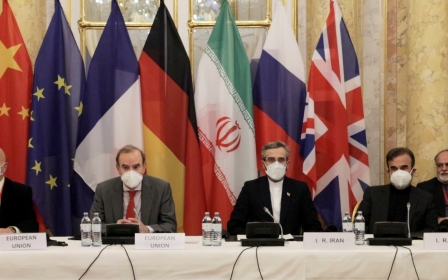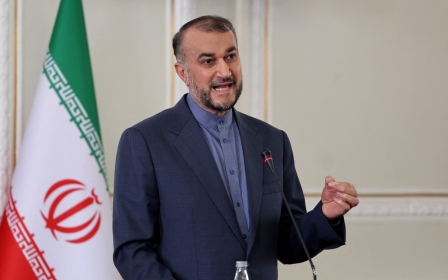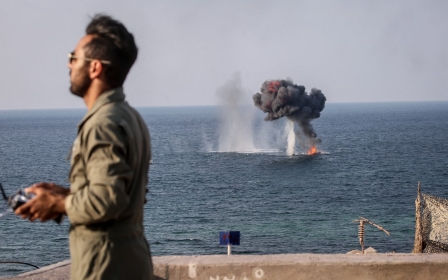US and Iran days away from nuclear deal, officials say
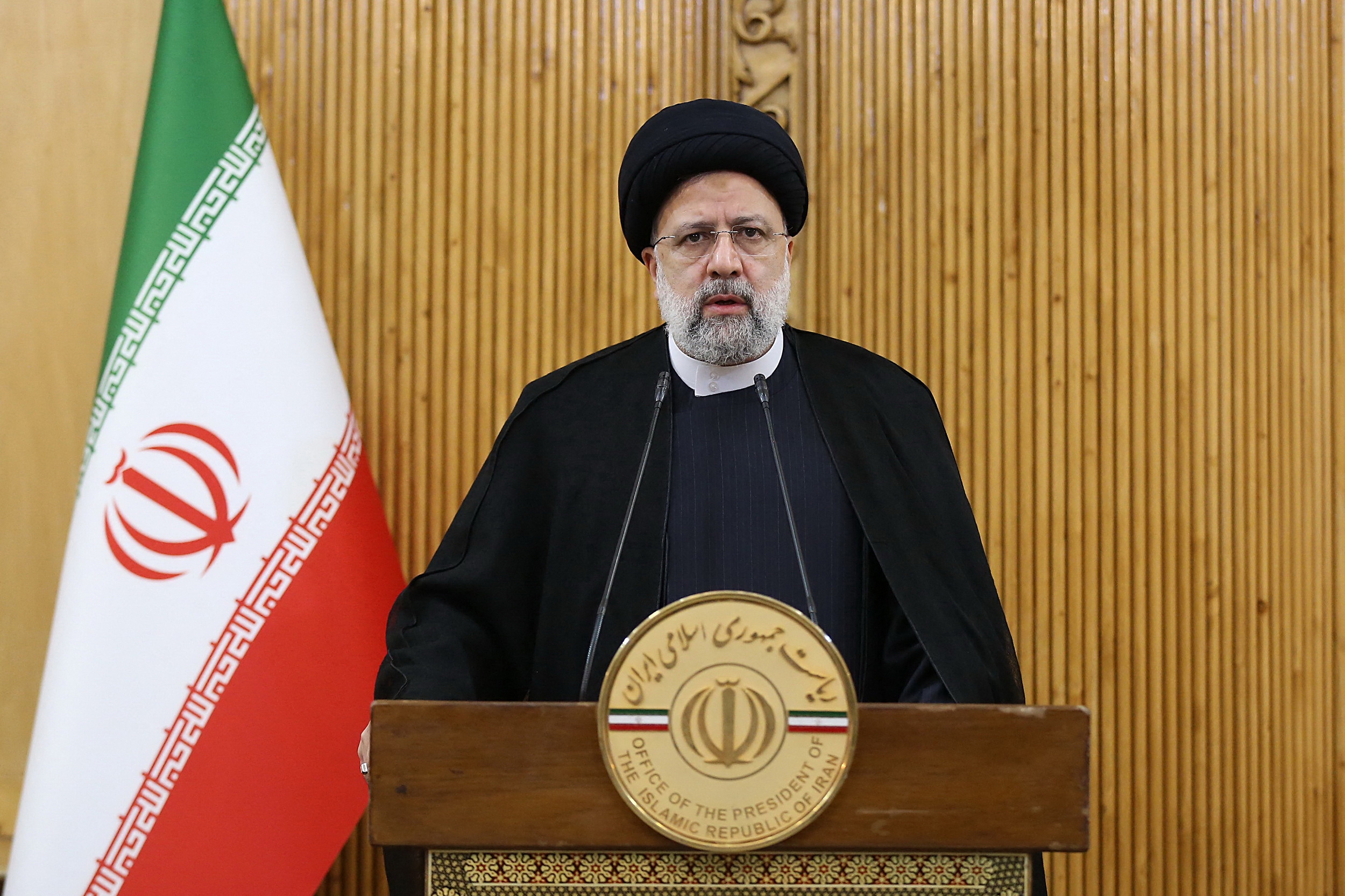
The US and Iran are inching closer to a deal to revive the 2015 nuclear accord, with officials involved in the talks saying an agreement could be completed by the end of the week.
Iranian foreign ministry spokesman Saeed Khatibzadeh said on Monday that "significant progress" had been made and a number of outstanding obstacles had been "considerably reduced".
"The remaining issues are the hardest," Khatibzadeh said during a press briefing.
US officials involved in the talks told the Wall Street Journal that an agreement could be finalised within the next couple of days.
The US and Iran have been engaged in indirect negotiations aimed at resurrecting the accord since April of last year. Iran has refused to deal directly with the US, leaving the other parties to the agreement - Britain, China, France, Germany and Russia - to shuttle between them during the talks in Vienna, Austria.
White House spokeswoman Jen Psaki said last week that negotiations had progressed substantially, "but nothing is agreed to until everything is agreed".
Closing a deal with Iran would mark the fulfilment of a signature campaign promise by President Joe Biden, whose administration sees the agreement as crucial to toning down tensions with Tehran in the Middle East.
Even as the talks proceed, much of Washington's focus has been on the crisis in Ukraine and the potential of war breaking out in Eastern Europe. At the same time, the Biden administration is attempting to deal with rising competition from China.
Both Beijing and Moscow are Iran’s main international partners and have been seen as its allies during the talks.
Sanctions relief
The texts of the agreement, believed to be 20 pages long, would see Iran return to compliance as outlined with the 2015 deal, in exchange for the US lifting all sanctions that were "incompatible" with the initial accord.
"The United States must show their desire to lift the main sanctions," President Ebrahim Raisi said Monday before a summit of natural gas exporting nations in Qatar.
"To reach an accord, it is necessary to guarantee the interests of the Iranian people, in particular the lifting of sanctions, [give] a strong guarantee and end dossiers of a political character."
Iran has demanded that all sanctions, including those imposed on the country before the Trump administration, be lifted as part of a deal.
The Trump administration pulled out of the agreement, officially known as the Joint Comprehensive Plan of Action (JCPOA), in 2018, on the grounds that it failed to rein in Tehran's support for regional proxies and ballistic missile development.
Iran maintained compliance with the accord for a few months before it began rolling back its commitments in 2019 and enriching uranium.
An unresolved issue remains the removal of sanctions on Iranian Supreme Leader Ayatollah Ali Khamenei and his entourage, along with Iran's Revolutionary Guard Corps, which was designated a Foreign Terrorist Organization (FTO) by the Trump administration.
Raisi, a conservative, came to office in an election last year which saw most of his opponents disqualified, in a vote that brought all the levers of power in Tehran under the control of hardliners.
Iran's parliament sent a letter to Raisi demanding that a deal should not be signed unless all of the country's initial demands were met - something the foreign minister has said is nearly impossible.
Parliament has no official say on Iran's return to a deal. The ultimate decision rests with Khamenei.
Resistance in DC
Opposition to the deal has also been mounting in the US amongst Republicans and some key Democrats.
Republican lawmakers have warned Biden against reaching a deal without congressional approval. They have stressed that under the Iran Nuclear Agreement Review Act of 2015, the president must submit any nuclear deal with Iran for Congress' review within five days of concluding the agreement.
That procedure could lead to a vote in the Senate, but it would require a two-thirds majority to override the President’s likely veto of a resolution of disapproval. The Senate is split evenly between Democrats and Republicans, with Vice President Kamala Harris casting the tie-breaking vote.
Democratic senator Robert Menendez, who chairs the powerful Foreign Relations Committee, has also expressed his concern over the deal.
In a blistering hour-long speech on the Senate floor earlier this month, the lawmaker accused US officials of "clinging" to the framework of the 2015 nuclear agreement for "nostalgia's sake" as he warned against reentering the agreement in its current form.
Since the US left the accord in 2018, Iran has expanded its nuclear work, including producing highly enriched uranium.
US officials have assessed that the time frame in which Iran could produce enough fuel for a nuclear bomb - the "breakout time" - has also been significantly reduced from the one-year framework underpinning the 2015 agreement.
The new timeframe could severely limit Washington's ability to respond to an Iranian nuclear threat. Many of the limits on Iran's nuclear activity would also expire by 2030, as initially agreed under the 2015 deal, a point Biden's domestic opponents have said goes against his promise of making "a longer and stronger deal".
Hope that the two sides were edging closer to an agreement came as Iran was seen moving on one of its key demands: that the US guarantee any agreement would not be rescinded by a future administration, a position the Biden administration has said is impossible for it to meet under the US system of government.
Iran's foreign minister, Hossein Amir Abdollahian, has said that Tehran would be open to a written statement of intent by US Congressional leaders, who are currently Democrats, not to tear up the deal in the future.
Abdollahian told the Munich Security Conference on Sunday that the "window was open" and "we are close to a deal".
Middle East Eye delivers independent and unrivalled coverage and analysis of the Middle East, North Africa and beyond. To learn more about republishing this content and the associated fees, please fill out this form. More about MEE can be found here.



